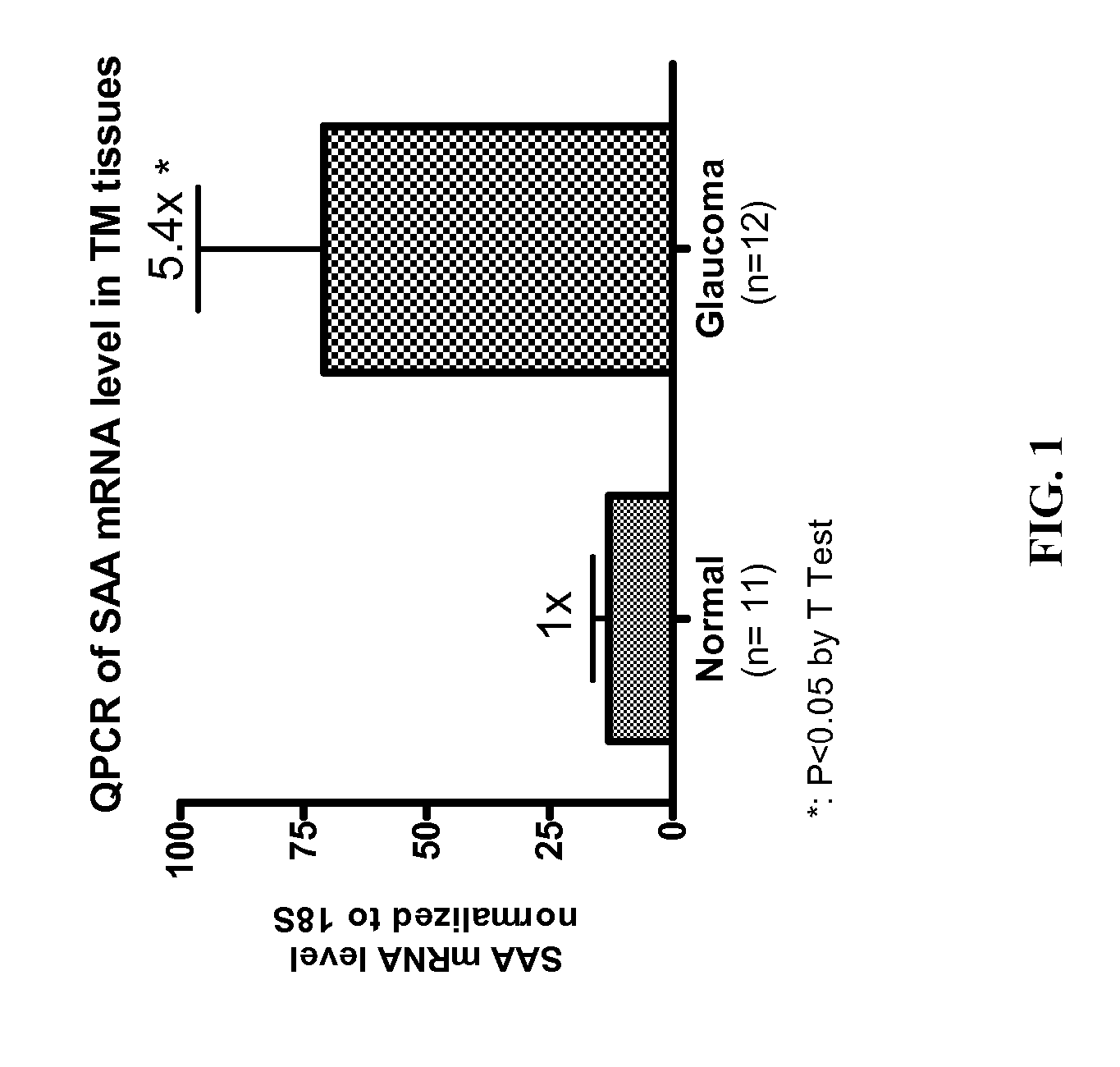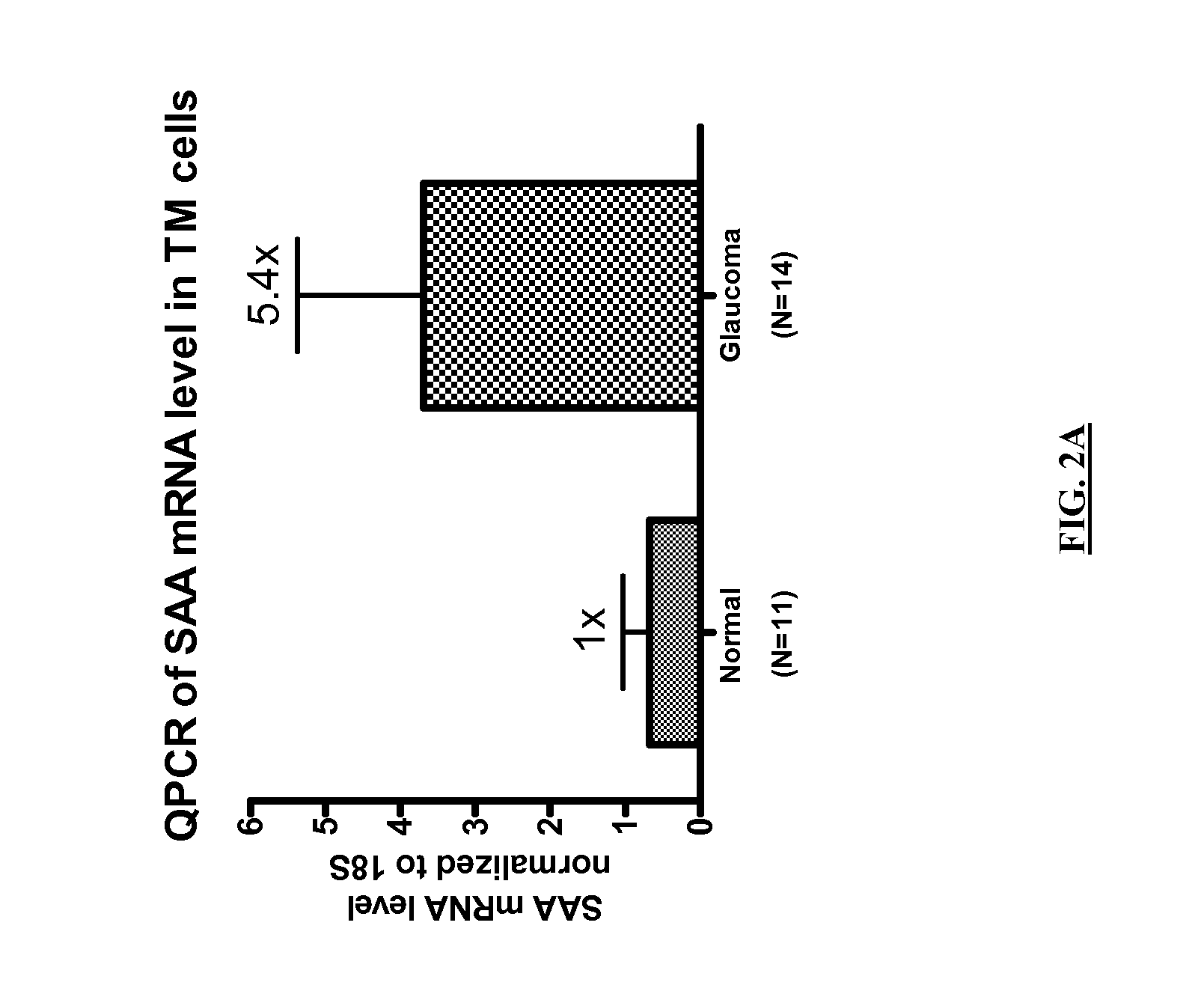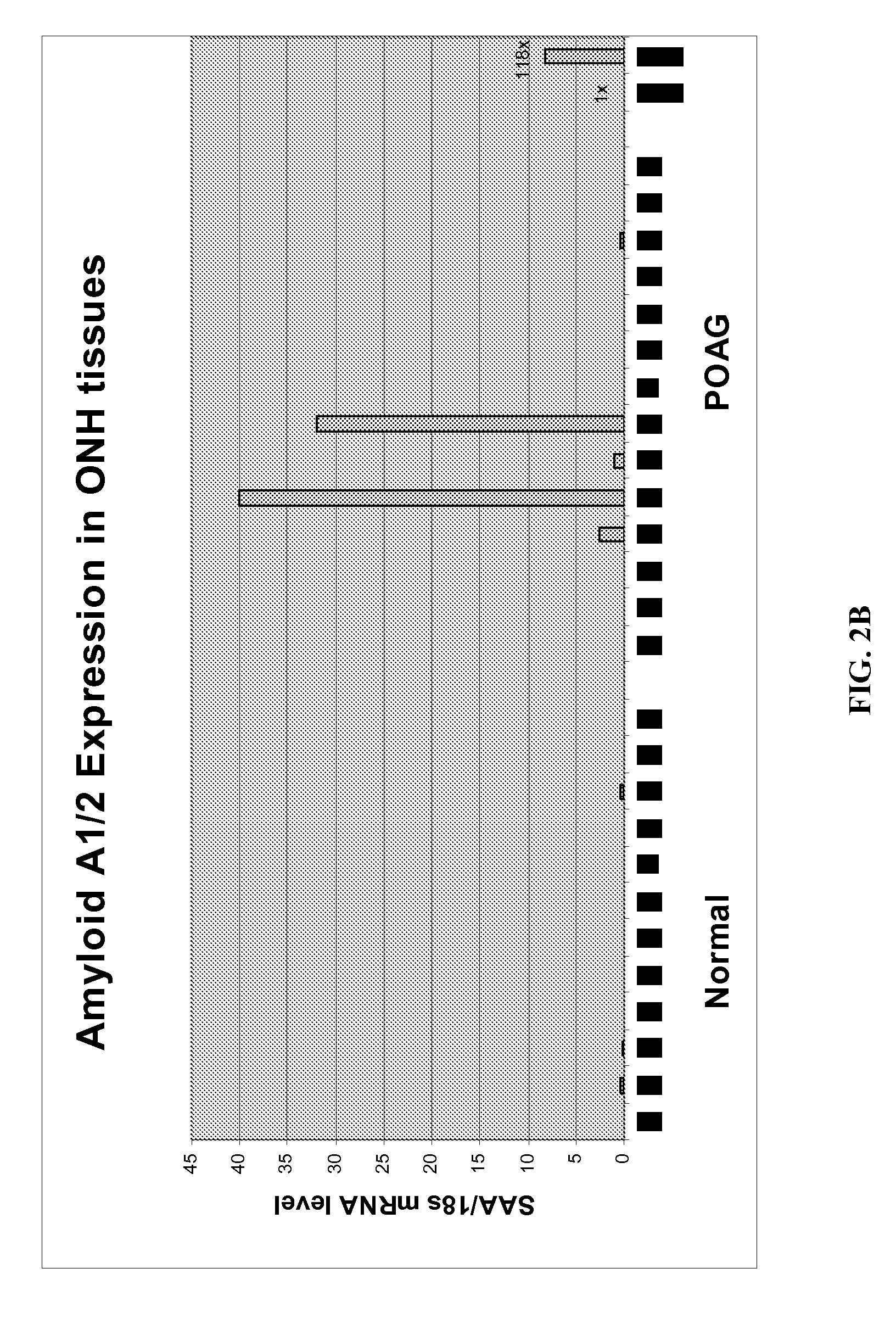Use of serum amyloid A gene in diagnosis and treatment of glaucoma and identification of anti-glaucoma agents
a technology of serum amyloid a gene and glaucoma, which is applied in the field of diagnosis and treatment of glaucoma, can solve the problems of progressive visual loss and blindness, obstructing the normal ability of aqueous humor to leave the eye without closing the space, and the extracellular matrix of the optic nerve head would not likely prevent the rgc death caused by the ey
- Summary
- Abstract
- Description
- Claims
- Application Information
AI Technical Summary
Benefits of technology
Problems solved by technology
Method used
Image
Examples
example 1
Increased Expression of SAA1 and SAA2 in Glaucomatous TM Cells and Tissues
[0095]RNA pools of TM tissues from 13 normal donors vs. 9 glaucoma donors was used to determine gene expression using the Affymetric GeneChips set (HG-U133). Amyloid A2 expression was identified to increase 4 fold in glaucoma comparing to that in normal TM tissues. To confirm this result, QPCR was conducted using individual RNA from 12 glaucoma and 11 normal TM tissues. Five from 12 glaucoma TM tissues (42%) showed significant increase in SAA1 / 2 expression. Average of SAA expression in the 12 glaucoma TM was 5.4 fold to that in the 11 normal TM (FIG. 1). In addition, a similar trend of SAA differential expression was observed in glaucoma TM cells or glaucoma optic nerve head tissues. There was an average increase of 5.4-fold in glaucoma TM cells (14 glaucoma vs. 11 normal TM cell lines, FIG. 2A) and 118-fold in glaucoma optic nerve head tissues (14 glaucoma vs. 12 normal, FIG. 2B) compared to normals, respecti...
example 2
Formulation of Fenofibrate for Topical Application
[0097]
1% Fenofibrate suspension for topical application to decrease SAAand lower IOP in the eye.DescriptionConc.UnitsPurposeFenofibrate, NOC 1%W / V %active ingredienthydroxypropyl 0.5%W / V %viscosity modifiermethylcellulose(2910) (E4M), USPdibasic sodium phosphate 0.2%W / V %buffering agent(anhydrous), uspsodium chloride, usp0.75%W / V %tonicity agentdisodium edta0.01%W / V %chelating agent(edetate disodium), usppolysorbate 80, nf0.05%W / V %wetting agentbenzalkonium chloride,0.01%W / V %preservativenfsodium hydroxide, nfq.s. pHW / V %pH adjusthydrochloric acid, nfq.s. pHW / V %pH adjustpurified water, uspq.s. 100%W / V %vehicle
example 3
Procedure for Screening and Identifying Compounds that Alter the Expression of SAA mRNA or SAA Proteins
[0098]One method that can be used for screening for agents that alter SAA expression and function is to determine changes in SAA protein levels. Kits for in vitro assay for quantitative determination of Serum Amyloid A (SAA) in animal or human sera, plasma, buffered solutions, cell culture media, and tissue or cell extracts are commercially available. The assay is a solid phase sandwich Enzyme Linked-Immuno-Sorbent Assay (ELISA). A monoclonal antibody specific for SAA has been coated onto the wells of a microtiter plate. Samples, including standards of known SAA content, or unknowns, are added to these wells along with a secondary antibody conjugated to alkaline phosphatase or peroxidase. The antibodies are constructed such that neither one interferes with the binding epitope of the other. The SAA is both captured on the plate by the immobilized antibody and labeled with the conjug...
PUM
| Property | Measurement | Unit |
|---|---|---|
| concentrations | aaaaa | aaaaa |
| intraocular pressure | aaaaa | aaaaa |
| Open Angle | aaaaa | aaaaa |
Abstract
Description
Claims
Application Information
 Login to View More
Login to View More - R&D
- Intellectual Property
- Life Sciences
- Materials
- Tech Scout
- Unparalleled Data Quality
- Higher Quality Content
- 60% Fewer Hallucinations
Browse by: Latest US Patents, China's latest patents, Technical Efficacy Thesaurus, Application Domain, Technology Topic, Popular Technical Reports.
© 2025 PatSnap. All rights reserved.Legal|Privacy policy|Modern Slavery Act Transparency Statement|Sitemap|About US| Contact US: help@patsnap.com



